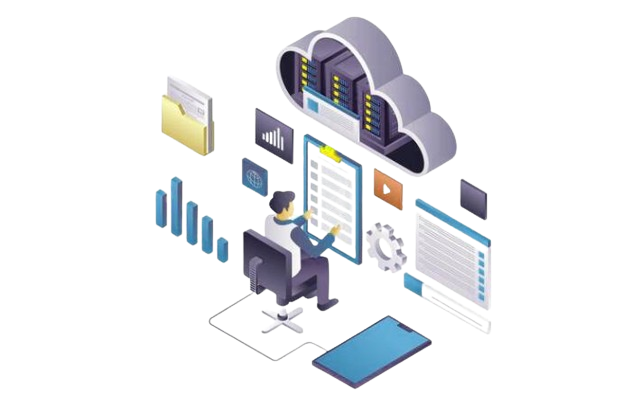- Customer Reviews and Case Studies: Look for customer reviews and case studies that demonstrate the provider's experience with similar migrations. Positive feedback from other businesses in your industry can provide confidence in your choice.
- Certifications and Partnerships: Providers with certifications, such as Microsoft Gold Partner or Google Cloud Partner, often have proven expertise and access to advanced tools and resources, enhancing the success of your migration.
Choosing The Right Email Migration Service:
Key Factors To Consider For Your Business
Key Factors To Consider For Your Business
Email is a critical communication tool for businesses, and migrating to a new email service can be a daunting task. Whether you're moving from on-premises to the cloud, switching between cloud providers, or upgrading your current email system, the success of the migration process depends on choosing the right email migration service. This guide will walk you through the key factors to consider when selecting an email migration service for your business.
Understanding the Importance of Email Migration
Before diving into the selection process, it's essential to understand why email migration is crucial for your business. A smooth migration ensures that your email communications remain uninterrupted, your data stays secure, and your employees can continue working without any significant disruptions. Delve into the intricacies of email migration services right here.

1. Compatibility with Existing Systems
One of the first considerations when choosing an email migration service is compatibility with your existing systems. The service you select must support the email platform you are migrating from and the one you are migrating to.
Legacy Systems
If your business is using a legacy email system, such as an on-premises Microsoft Exchange server, you'll need a migration service that can handle the specific protocols and data formats associated with that system.
Cloud-Based Email Platforms
For businesses moving between cloud-based platforms, such as from G Suite (now Google Workspace) to Microsoft 365, it's important to choose a migration service that specializes in cloud-to-cloud migrations. These services often have tools and processes tailored for large-scale data transfers, ensuring minimal disruption.
2. Data Security and Compliance
Data security should be a top priority during an email migration. The migration service must provide robust security measures to protect sensitive business information.
Encryption
Ensure the service offers end-to-end encryption during the migration process. This helps prevent unauthorized access to your data while it is in transit.
Compliance with Regulations
Depending on your industry, you may be subject to specific regulations regarding data handling and storage, such as GDPR, HIPAA, or FINRA. The migration service should be fully compliant with these regulations, offering features such as data residency options and audit trails. Please proceed to check out for more guidance.
3. Migration Speed and Downtime
Minimizing downtime is crucial for maintaining business continuity during an email migration.
Speed of Migration
The speed of the migration process can vary significantly depending on the size of your organization, the amount of data being transferred, and the complexity of your email infrastructure. Look for services that offer scalable solutions, allowing for faster data transfer rates to reduce the overall migration time.
Downtime Management
Some migration services offer features like phased migrations or scheduled cutovers to help manage downtime. These features allow you to migrate users in stages, reducing the impact on your business operations.
4. Cost Considerations
The cost of an email migration service can vary widely, so it's important to understand what you're paying for and ensure it fits within your budget.
Pricing Models
Some services charge based on the number of mailboxes, while others may offer a flat rate or charge based on data volume. Be sure to compare pricing models to find the most cost-effective option for your business.
Hidden Costs
Be aware of potential hidden costs, such as additional fees for support, data storage, or post-migration services. Clarify what is included in the service package to avoid any surprises.

5. Support and Service Level Agreements (SLAs)
Support is a critical factor during an email migration, especially if issues arise.
24/7 Support Availability
Check if the migration service offers 24/7 support, particularly if your business operates across multiple time zones or if the migration is scheduled during off-hours.
Service Level Agreements (SLAs)
Review the Service Level Agreements (SLAs) provided by the migration service. These agreements outline the expected level of service, including uptime guarantees, response times, and resolution times for any issues that may occur during the migration.
6. Experience and Track Record
The experience and reputation of the migration service provider can be a strong indicator of the quality of service you can expect.